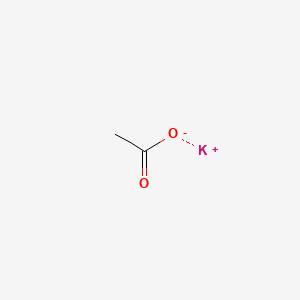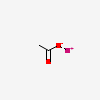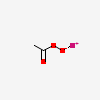Potassium Acetate Manufacturer and Supplier
CAS No.: 127-08-2 | EC Number.: 204-822-2 | Molecular formula.: C2H3O2K; C2H3KO2; CH3COOK
Potassium Acetate
Potassium Acetate Manufacturers, Potassium Acetate Suppliers, Potassium Acetate Formula, Potassium Acetate Price, Potassium Acetate SDS, Potassium Acetate Exporter in Mumbai, India.
Vinipul Chemicals Pvt. Ltd, a renowned manufacturer, supplier, and exporter in India, specializes in producing high-purity Potassium Acetate CAS No. 127-08-2. Our commitment to delivering exceptional quality products is evident in our meticulous approach to formulation, utilizing superior purity chemicals and state-of-the-art manufacturing equipment that adhere to international industry standards.
As a prominent potassium acetate manufacturer, we take pride in offering Potassium Acetate that is free from impurities and exhibits an accurate composition, ensuring its suitability for various applications. With our stringent quality control measures, we guarantee that our Potassium Acetate meets the highest standards of purity, enabling our customers to rely on its consistent performance.
At Vinipul Chemicals, we understand the importance of longevity and stability in chemical products. Therefore, our Potassium Acetate is meticulously prepared to possess a long shelf life, ensuring its effectiveness and reliability even after extended periods of storage. Whether you require Potassium Acetate for research, industrial, or commercial purposes, we provide a comprehensive solution that meets your specific needs. As a leading potassium acetate supplier, our commitment to fine quality, precise composition, and durability makes us a trusted source for Potassium Acetate in the market.
What is Potassium Acetate?
Potassium Acetate, a versatile compound, is produced through the reaction of potassium carbonate or potassium hydroxide with acetic acid. This process results in the formation of Potassium Acetate Powder, which finds extensive applications in various industries. One notable use is in fire extinguishers, where Potassium Acetate functions as an effective extinguishing agent due to its ability to suppress flames by inhibiting chemical reactions. Additionally, Potassium Acetate serves as a food additive, offering enhanced preservation properties to certain food products.
The significance of Potassium Acetate extends beyond fire safety and food preservation. It also plays a crucial role in pharmaceutical synthesis. The chemical formula for potassium acetate is CH3CO2K. This compound is employed in the production of medicines, particularly antibiotics like potassium penicillin. By contributing to the synthesis process, potassium acetate formula aids in the creation of essential pharmaceutical substances that combat bacterial infections and promote better health.
Potassium Acetate Details
This table provides information about Potassium Acetate, a chemical compound with the CAS No. 127-08-2 and EC Number 204-822-2. The table also lists various Potassium Acetate common name and synonyms. The table contains Potassium Acetate structure, potassium acetate solubility and molecular formula. It is a white granular powder of monoclinic crystals. Potassium Acetate pH. value is also mentioned in the table. Potassium Acetate is commonly used in various industries in different applications. It is also used in the pharmaceutical industry for various purposes.
Specifications
| Chemical name | Potassium Acetate |
| CAS No | 127-08-2 |
| EC Number | 204-822-2 |
| Commercial name / Synonyms | Potassium acetate, Diuretic salt, ACETIC ACID, POTASSIUM SALT, Acetic acid potassium salt, potassium;acetate, Potassium ethanoate, KOAc, MFCD00012458, Potassium, acetate, Acetic acid potassium salt, Kali aceticum, Potassium acetates, Acetic acid, potassium salt (1:1) |
| Molecular formula | C2H3O2K C2H3KO2 CH3COOK |
| Chemical Structure |  |
| Melting Point | 292.0 °C |
| IUPAC Name | potassium;acetate |
| Parent Compound | Acetic Acid |
| Component Compounds | Acetic Acid Potassium |
| Physical Form | NA |
| Physical Appearance | Dry Powder / Liquid / Other Solid / PelletsLargeCrystals |
| pH (5% in distilled water ) | 7.5 – 9.0 |
| Assay % | Min 98.0 |
| Crystal structure | Monoclinic |
| Solubility in alcohol | Yes |
| Solubility (5% solution) | Freely soluble in distilled water & clear solution |
| Packaging Details | 25 kg / 50 kg / HDPE packaging bags / Drum/ As per Client’s requirements |
Computed Properties
The table provides various properties of a chemical compound, including its molecular weight, four hydrogen bond acceptor counts, an exact mass and mono-isotopic mass, heavy atom counts, and a topological polar surface area. These properties are useful in identifying and characterizing the compound for various purposes in industries such as pharmaceuticals and chemicals.
| Property Name | Property Value |
| Molecular Weight | 98.14 g/mol |
| Hydrogen Bond Acceptor Count | 2 |
| Exact Mass | 97.97701082 g/mo |
| Monoisotopic Mass | 97.97701082 g/mol |
| Heavy Atom Count | 5 |
| Topological Polar Surface Area | 40.1Ų |
| Complexity | 34.6 |
| Covalently-Bonded Unit Count | 2 |
| Compound Is Canonicalized | Yes |
Related Compounds with Annotation
The table provides information on various structures and compounds related to Potassium acetate. It includes the structure images, structure names, compound CID (Compound Identifier), neighbour type, and annotation types count. The first structure is acetate, also known as Acetate Ion or Acetic acid ion, with a CID of 175 and 2D representation. It has 7 annotation types associated with it. The table also includes other compounds such as potassium acetate, acetoxy radical, and peracetic acid potassium salt, each with their respective CID and annotation types count. Overall, the table provides a collection of structures and compounds related to acetate, along with some additional details.
| Structure Image | Structure Name | Compound CID | Neighbour Type | Annotation Types Count |
|---|---|---|---|---|
 | acetate, Acetate Ion, Acetic acid, ion(1-), 71-50-1, Acetate ions | 175 | 2D | 7 |
 | MOLI000770 | 450346 | 2D | 1 |
 | MOLI000771 | 450348 | 2D | 1 |
 | Potassium acetate, 127-08-2, Diuretic salt, ACETIC ACID, POTASSIUM SALT, Potassium ethanoate | 517044 | 2D | 12 |
 | Acetoxy radical | 5359261 | 2D | 1 |
 | NA | 12358161 | 2D | 1 |
 | NA | 18350099 | 2D | 1 |
 | NA | 18609027 | 2D | 1 |
 | Peracetic acid potassium salt, SCHEMBL377464 | 23662732 | 2D | 2 |
 | NA | 50987169 | 2D | 1 |
 | NA | 57817008 | 2D | 1 |
 | NA | 60014571 | 2D | 1 |
 | NA | 74765071 | 2D | 1 |
 | NA | 101359700 | 2D | 2 |
 | NA | 102089142 | 2D | 2 |
 | NA | 140644376 | 2D | 1 |
 | potassium acetate-d3 | 146021269 | 2D | 1 |
 | NA | 146033371 | 2D | 1 |
 | NA | 153693916 | 2D | 1 |
 | NA | 153693974 | 2D | 1 |
 | NA | 153807963 | 2D | 1 |
 | NA | 154058596 | 2D | 1 |
 | NA | 154064598 | 2D | 1 |
 | NA | 154410204 | 2D | 1 |
 | NA | 162152960 | 2D | 1 |
 | NA | 165153374 | 2D | 1 |
Potassium Acetate Price
If you are looking to purchase Potassium Acetate, it’s important to know the current market Potassium Acetate price per gram. Potassium Acetate price can vary depending on the various factors. Vinipul Chemicals offers the best price in the market listed below: –
| Product Range | Price |
| Potassium Acetate Pure | Rs 110/kilogram |
| Potassium Acetate Technical | Rs 210/kilogram |
| Potassium Acetate Anhydrous | Rs 170/kilogram |
| Potassium Acetate Powder | Rs 25/kilogram |
Prices shown above are provisional prices and may change due to different market conditions for latest prices
Call Us
+91-932 223 1817
Mail Us
business@vinipulchemicals.com
Types of Potassium Acetate

Potassium Acetate Pure

Potassium Acetate Technical

Potassium Acetate Anhydrous

Potassium Acetate Powder
Potassium Acetate Vs Potassium Chloride
Potassium acetate and potassium chloride are both types of ionic compounds composed of cations (positively charged ions) and anions (negatively charged ions). However, there are important distinctions between the two.
Potassium acetate is the potassium salt of acetic acid, an organic compound commonly found in vinegar. It consists of potassium cations (K+) and acetate anions (CH3COO-). The acetate anion is formed by the dissociation of acetic acid, where one hydrogen ion is replaced by a potassium ion. Potassium acetate is widely used in various applications, including as a food additive, a buffering agent in pharmaceuticals, and a deicing agent.
On the other hand, potassium chloride is a metal halide salt composed of potassium cations (K+) and chloride anions (Cl-). It is derived from the combination of a potassium metal cation and a chlorine atom. Potassium chloride has numerous applications, including as a dietary supplement, a fertilizer in agriculture, and a component in medical treatments.
In summary, the main distinction between potassium acetate and potassium chloride lies in their chemical compositions. Potassium acetate is the potassium salt of acetic acid and contains acetate anions, while potassium chloride is a metal halide salt composed of potassium and chloride ions.
Once the reaction is complete, the mixture is allowed to cool down, and the resulting Sodium Diacetate is in a liquid form. The liquid is then dried directly, without concentration, resulting in high product yield, and saving power and working time.
The process of manufacturing Sodium Di Acetate requires precise control of temperature, pressure, and reactant concentration to ensure a high-quality product. Moreover, the equipment used in the manufacturing process must be of superior quality to ensure the efficiency and safety of the process.
Overall, the manufacturing process of sodium diacetate formula is a carefully controlled and complex process that requires expertise and experience. By using this process, manufacturers can produce high-quality Sodium Di Acetate that is suitable for a variety of applications, such as food preservation and pharmaceuticals.
Is potassium acetate acid or base?
Potassium acetate is considered a weak base. When heated or in contact with strong acids, it decomposes and releases acetic acid fumes. This indicates that it has the ability to accept protons (H+) from strong acids, which is a characteristic of a weak base.
Is potassium acetate soluble?
Potassium Acetate is a white crystalline solid that has the tendency to absorb moisture from the air, making it deliquescent. It exhibits limited solubility in organic solvents such as ether, meaning it does not readily dissolve in them. However, it is soluble in alcohol, ammonia, and especially water.
When Potassium Acetate is added to alcohol, ammonia, or water, it readily dissolves, forming a clear and homogeneous solution. The solubility of Potassium Acetate in water is relatively high, allowing for easy dissolution and dispersion in aqueous solutions. This solubility property is beneficial for its utilization in various industries and applications, including pharmaceuticals, food additives, and chemical synthesis.
In contrast, Potassium Acetate’s insolubility in organic solvents like ether makes it suitable for certain applications where it is necessary to separate or extract it from organic mixtures. Its solubility characteristics in different solvents play a crucial role in determining its usability and versatility in various chemical processes and formulations.
Role of potassium acetate in plasmid isolation
Potassium acetate plays a crucial role in the process of plasmid isolation. When added to the solution containing the plasmid, it serves two important functions.
Firstly, potassium acetate causes the precipitation of a complex formed by sodium dodecyl sulfate (SDS), proteins, and lipids. This complex forms a white precipitate, allowing for the separation of these unwanted substances from the desired plasmid. The precipitation of the SDS-protein complex is a crucial step in purifying the plasmid DNA, as it removes impurities and contaminants that may interfere with subsequent analysis or applications.
Secondly, the role of potassium acetate in DNA extraction is that it neutralizes the solution by adjusting its pH. This neutralization is essential for the successful renaturation of the plasmid DNA. Renaturation refers to the process of re-establishing the double-stranded structure of the DNA, which is necessary for its proper function and stability. The neutralizing effect of potassium acetate creates favourable conditions for the DNA strands to reanneal and reform their double-stranded structure.
Overall, potassium acetate acts as a key component in plasmid isolation, facilitating the precipitation of unwanted SDS-protein complexes and enabling the renaturation of the purified plasmid DNA. This process ensures the integrity and quality of the isolated plasmid, making it suitable for further molecular biology applications such as cloning, sequencing, or gene expression studies.
Industrial Applications
Potassium Acetate finds applications in a wide range of industries, including:

Chemical Industries
Potassium Acetate is utilized as a chemical intermediate in the production of various chemicals, including pharmaceuticals, dyes, and organic compounds. Its versatile nature and ability to undergo reactions make it valuable in chemical synthesis processes.

Food Industry
Potassium Acetate is approved as a food additive and is used for its preservative properties. It helps extend the shelf life of certain food products by inhibiting the growth of microorganisms. Additionally, it can act as a buffering agent, maintaining the pH level in food and beverage formulations.

Textile Industries
In the textile industry, Potassium Acetate is employed as a dyeing and printing agent. It enhances the colour fastness of fabrics, allowing for vibrant and long-lasting dyes. Potassium Acetate is also used as a softener in textile finishing processes, improving the feel and texture of fabrics.

Rubber Industry
Potassium Acetate is utilized in the rubber industry as a coagulant in latex production. It aids in the formation of rubber particles, leading to improved rubber quality and processing efficiency.

Colouring Industries
Potassium Acetate is used as a component in various colouring agents, pigments, and paints. It helps enhance the stability, dispersibility, and overall performance of colorants.

Inorganic Chemical Sector
Potassium Acetate is utilized in the production of inorganic chemicals such as potassium penicillin, which is an important antibiotic. It serves as a critical raw material in the synthesis of various inorganic compounds, contributing to the pharmaceutical and chemical sectors.
Potassium Acetate Uses
Potassium Acetate serves as a versatile ingredient in various industries. Here are its diverse applications:
- Food Products: Potassium Acetate is used as an ingredient in food products, serving as sweeteners, thickeners, preservatives, colorants, and emulsifiers. It finds usage in items like chocolates, candies, gums, mints, beverages, and powdered drinks.
- Personal Care and Cosmetics: Potassium Acetate is utilized in personal care and cosmetic products, contributing to fragrance, acidulants, emulsifiers, and preservatives. It enhances the performance and stability of items such as skincare products, hair care formulations, and cosmetics.
- Pharmaceuticals Formulation: Potassium Acetate finds application in the pharmaceutical sector for various purposes, including formulation and synthesis processes. It is used in the production of medications and can be found in pharmaceutical preparations such as tablets, capsules, and liquid formulations.
- Metal Treatment Chemicals: Potassium Acetate is employed as a metal treatment chemical in industries such as oil refineries, electroplating, and feed production. It aids in processes related to metal treatment, protection, and enhancement.
- Leather Industry: Potassium Acetate is utilized in the leather industry for various applications, including tanning and finishing processes. It helps in the treatment and preparation of leather, contributing to its quality, durability, and aesthetic appeal.
- Fertilizers: Potassium acetate fertilizer plays a significant role in regulating the rate of respiration in plants by effectively reducing both water loss and energy loss. It aids in the maintenance of turgor pressure, which directly influences vital processes such as water loss, wilting, and transpiration through the leaves.
Potassium Acetate’s versatile nature allows it to play a vital role in these industries, showcasing its wide-ranging applications and usefulness in different manufacturing processes.
About Company
Vinipul Chemicals Pvt. Ltd. is a distinguished company renowned for its position as a leading manufacturer, supplier, and exporter of Potassium Acetate across India and Indian Subcontinent, East Asia, South East Asia, and the Middle East. As one of the leading potassium acetate manufacturers, Vinipul Chemicals has established itself as a trusted name in the industry. The company’s dedication to producing high-quality Potassium Acetate is evident in its use of superior purity chemicals and state-of-the-art manufacturing equipment, adhering to international industry standards. Vinipul Chemicals prides itself as prominent potassium acetate suppliers on delivering products with accurate composition, impurity-free formulations, and an extended shelf life.
FAQ's
Potassium acetate is also called acok or CH3CO2K.
Potassium Acetate (3 M), pH 5.5, RNase-free.
Potassium Acetate Solution is a transparent, almost colourless liquid that is produced by combining Potassium Hydroxide and Glacial Acetic Acid. It is available in concentrations of 52% or 57%.
Potassium Acetate is utilized as both a preservative and an acidity regulator.
Vinipul Chemicals Pvt. Ltd, a renowned supplier, and exporter in India, specializes in producing high-purity Potassium Acetate.
The recommended storage condition for potassium acetate is in a cool, dry place, away from heat and direct sunlight.
When working with potassium acetate, follow proper safety precautions such as wearing protective equipment (gloves, goggles) and ensuring adequate ventilation.
Yes, Vinipul Chemicals Pvt. Ltd provides customized packaging as per client’s requirements.
Market Area
We supply and exports Potassium Acetate in all parts of the world such as
Potassium Acetate in Africa Countries
South Africa , Nigeria, Kenya, Ghana, Ethiopia, Tanzania, Algeria, Angola, Benin, Botswana, Burkina Faso, Burundi, Cabo Verde, Cameroon, Central African Republic (CAR), Chad, Comoros, Democratic Republic of the Congo, Côte d’Ivoire, Djibouti, Egypt, Equatorial Guinea, Eritrea, Gabon, Gambia, Guinea, Guinea-Bissau, Lesotho, Liberia, Libya, Madagascar, Malawi, Mali, Mauritania, Mauritius, Morocco, Mozambique, Namibia, Nigeria, Rwanda, Sao Tome and Principe, Senegal, Seychelles, Sierra Leone, Somalia, South Sudan, Sudan, Swaziland, Togo, Tunisia, Uganda, Zambia, Zimbabwe.
Potassium Acetate in Gulf Countries
Oman, Qatar, Kuwait, Saudi Arabia, Dubai, Bahrain, Iran, United Arab Emirates
Potassium Acetate in Asia Countries
Afghanistan, Armenia, Azerbaijan, Bahrain, Bangladesh, Bhutan, Brunei, Cambodia, China, Cyprus, Georgia, India, Indonesia, Iran, Iraq, Israel, Japan, Jordan, Kazakhstan, Kuwait, Kyrgyzstan, Laos, Lebanon, Malaysia, Maldives, Mongolia, Myanmar (Burma), Nepal, North Korea, Oman, Pakistan, Palestine, Philippines, Qatar, Russia, Saudi Arabia, Singapore, South Korea, Sri Lanka, Syria, Taiwan, Tajikistan, Thailand, Timor-Leste, Turkey, Turkmenistan, United Arab Emirates (UAE), Uzbekistan, Vietnam, Yemen
We supply Potassium Acetate in all parts of India.
Andhra Pradesh, Arunachal Pradesh, Assam, Bihar, Chhattisgarh, Goa, Gujarat, Haryana, Himachal Pradesh, Jammu & Kashmir, Jharkhand, Karnataka, Kerala, Madhya Pradesh, Maharashtra, Manipur, Meghalaya, Mizoram, Nagaland, Odisha, Punjab, Rajasthan, Sikkim, Tamil Nadu, Telangana, Tripura, Uttarakhand, Uttar Pradesh and West Bengal.
Note: – Please be advised that the information contained in this document is intended for illustrative purposes only. Due to variations in product grade, applications, industries, or uses, the accuracy of the information provided cannot be guaranteed. © Copyright 2023 © Vinipul Chemicals All Rights Reserved (Terms of Use). Reproduction of any material from this site is strictly prohibited without permission. Vinipul Chemicals products are exclusively sold through the company’s website. For precise product specifications and requirements, as well as advice on which products are best suited for your specific application needs, please contact us at business@vinipulchemicals.com Use Terms | Privacy.


